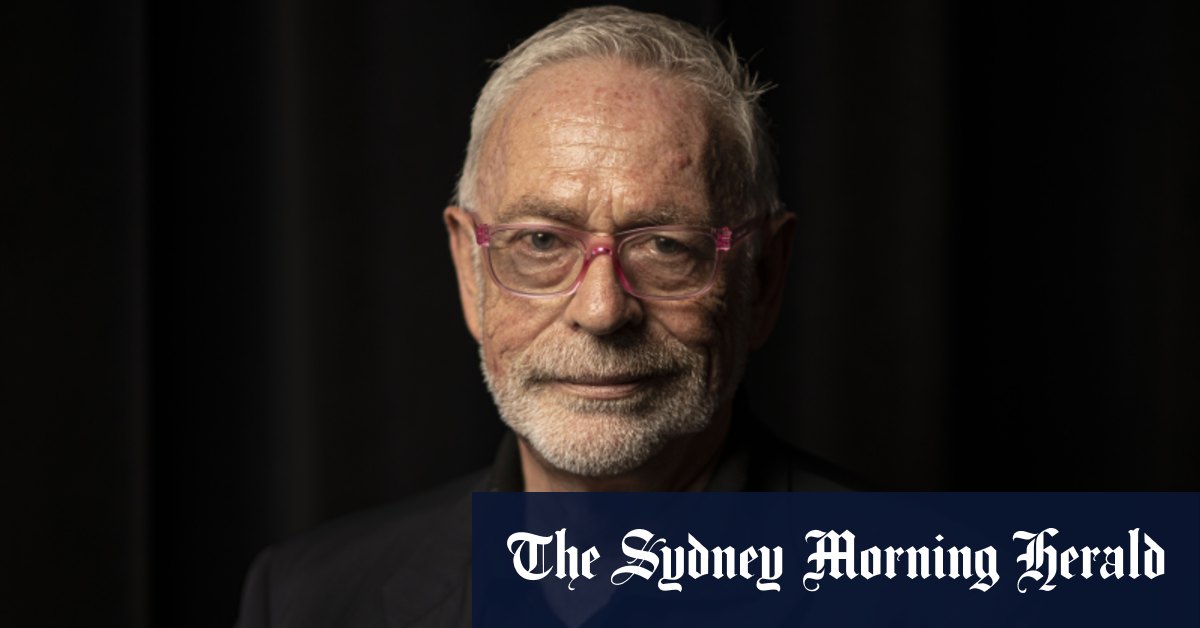Australia
HIV survivor and advocate helped achieve medical breakthroughs

David Polson: A Life of Resilience, Advocacy, and Legacy in the HIV/AIDS Crisis
Return to Sydney and the Dawn of a New Chapter
In 1981, David Polson returned to Sydney, marking the beginning of a new chapter in his life. He secured a position as a barman at the prestigious Regent Hotel, a five-star establishment that symbolized luxury and innovation in the city. Over time, his dedication and charisma earned him a promotion to manager of the Don Burrows Supper Club, a role that showcased his passion for hospitality and his ability to connect with people. However, this promising trajectory was interrupted by a life-altering diagnosis that would redefine his journey and purpose.
Diagnosis and the Pioneering Role of Professor David Cooper
David’s diagnosis with HIV redirected his path into uncharted territory, both personally and publicly. Under the care of Professor David Cooper at St. Vincent’s Hospital in Sydney, he became part of a groundbreaking journey in HIV research. Professor Cooper, alongside Professor Ron Penny, conducted pivotal studies that led to the first description of the seroconversion illness associated with initial HIV infection. This research laid the foundation for understanding the virus and its impact on the human body. For David, this marked the beginning of a 30-year journey of participation in over 28 drug trials under Dr. Cooper’s guidance. These trials, though often debilitating, forged a deep bond between David and his doctor, who became not only a medical ally but also a close friend.
Trials, Tribulations, and a Public Advocate Emerges
The experimental treatments David underwent were fraught with side effects, including nausea, fluid dystrophy, hearing loss, imbalance, and kidney disease. Yet, despite these physical challenges, David’s spirit remained unbroken. He emerged as a public figure, determined to support fellow HIV sufferers and combat the ignorance and fear surrounding the disease. Walking through St. Vincent’s Ward 17 South, the hospital’s dedicated AIDS ward, David often recognized 90 percent of the patients as friends. This harrowing reality underscored the urgency of his advocacy. By 1987, new HIV infections in Australia peaked at 2400, and by 1999, the number had declined to 719 cases. However, the toll was immense: 8,000 Australians lost their lives to the virus. David attended a funeral nearly every month, bearing witness to the devastating impact of HIV/AIDS on his community.
A Life Transformed: Sacrifices and Resilience
David’s diagnosis and subsequent health challenges necessitated significant sacrifices. He relinquished his career and dating life, focusing instead on his survival and advocacy. By 2011, his daily routine included taking 48 tablets, a regimen he accepted without bitterness, recognizing it as a lifeline. His resilience paid off: by around 2020, his HIV status was confirmed as undetectable, meaning the virus was no longer transmissible. This milestone marked a triumph of modern medicine and David’s unwavering resolve.
The Vision of Qtopia: Honoring History and Promoting Healing
Following Professor Cooper’s death in March 2018, David was inspired by a conversation with Cooper’s widow, Dorrie, to fulfill his vision of creating a space to honor the history of those affected by HIV/AIDS. With an endowment from Lachlan and Sarah Murdoch, support from the state and city, and the patronage of prominent figures like Ita Buttrose and former High Court Justice Michael Kirby, the old Darlinghurst Police Station was transformed into Qtopia. Officially opened on February 24, 2024, Qtopia serves as a museum dedicated to memory, celebration, and education. Embracing Michael Kirby’s counsel, the museum also acknowledges the broader struggles of the queer community, offering a sanctuary of remembrance and learning.
A Legacy of Hope and Recognition
David’s contributions to HIV education and advocacy earned him the prestigious title of Member of the Order of Australia in the 2023 Australia Day honors. His passionate and eloquent advocacy continues to inspire, even as he faced personal challenges. A recent portrait by artist Alun Rhys Jones, now part of the Art Gallery of NSW, and a wall of remembrance garden planted in his honor at Qtopia, stand as testaments to his enduring legacy. David Polson is survived by his sister Ruth Henning, nephews William and Edward, his cherished terrier Rosie, and a vast network of friends who affectionately knew him as Polly. Until the end, David embodied his mantra of H.O.P.E.—humor, optimism, perseverance, and energy—leaving behind a legacy of love, resilience, and transformation.











